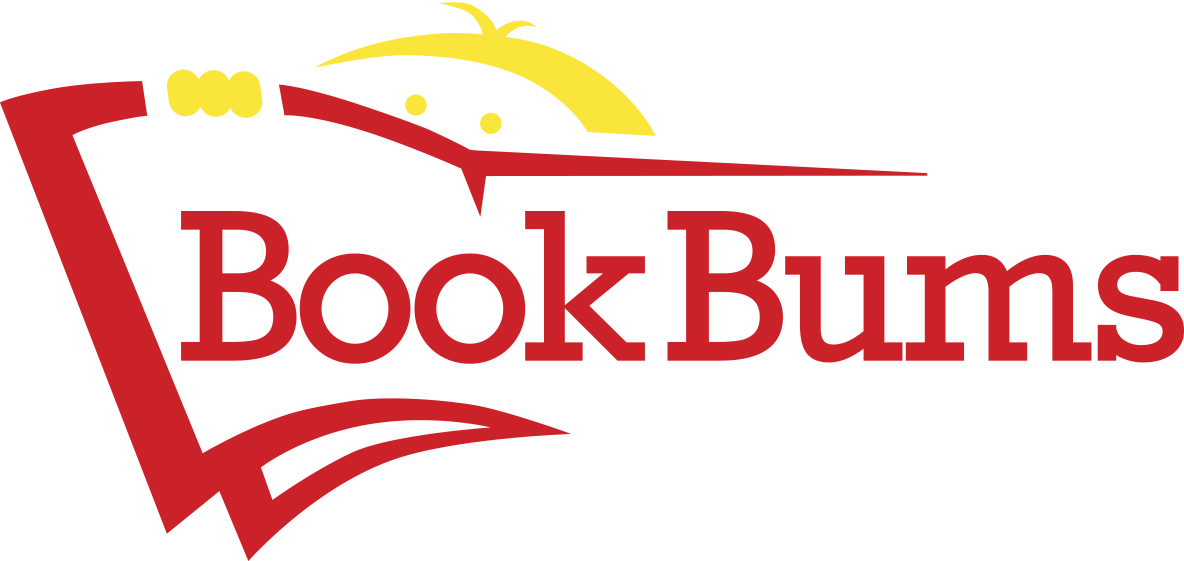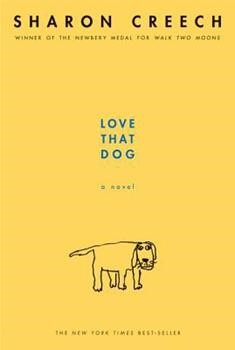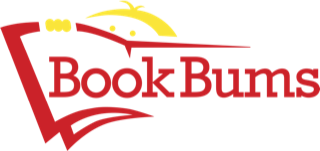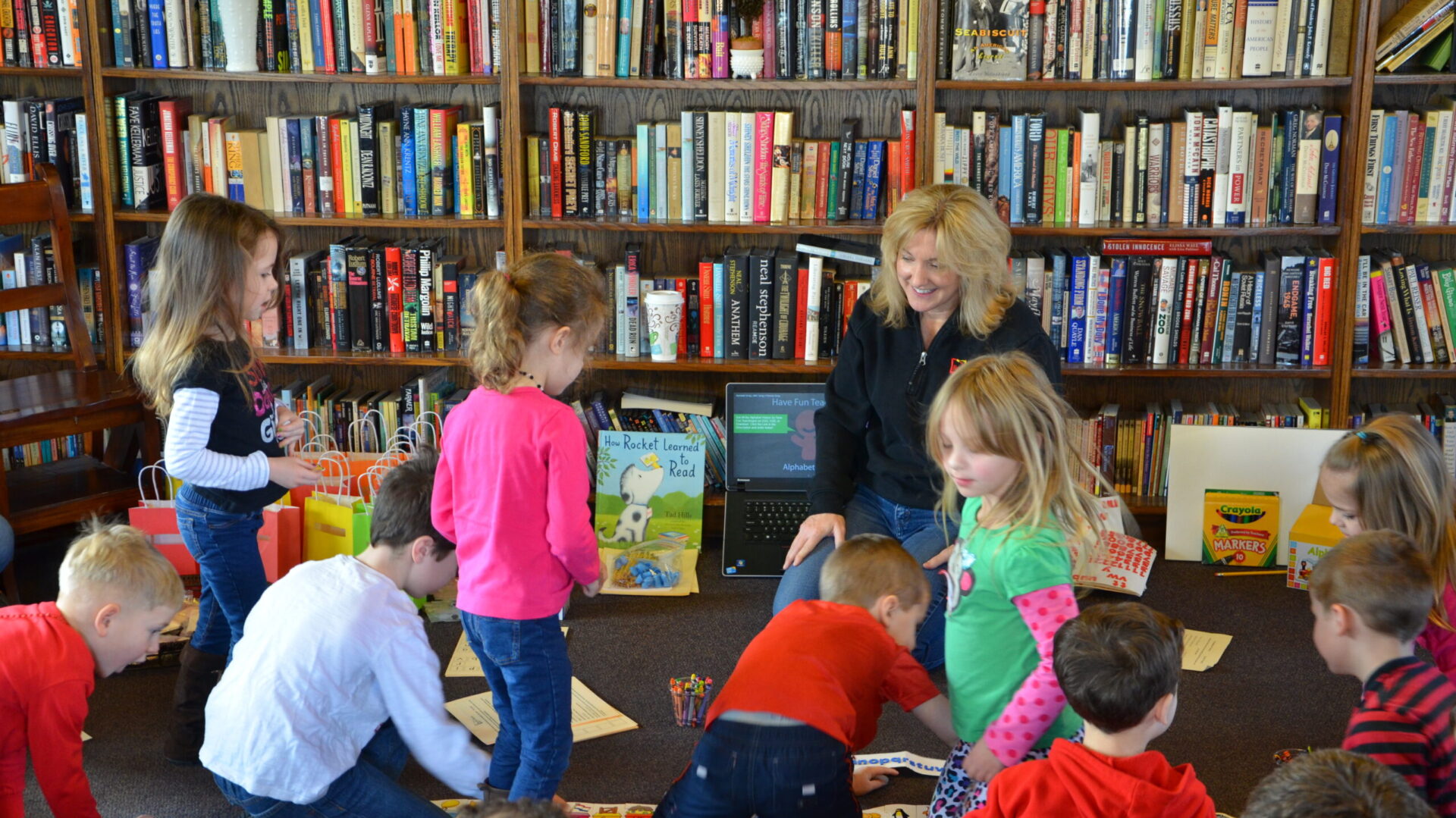
Hello Book Bums families!
This week our newsletter is full of ideas for creating experiences, inside and outside books. We are also enjoying sharing poetry with you during National Poetry Month and hope it is inspiring your family to include more poetry in your life. Whatever book you are picking up this week, enjoy!

Bookbums.com is an Amazon Associate; We earn from qualifying purchases. This means that if you click on a link to Amazon.com and make a purchase, We may earn a small commission at no extra cost to you. We do recommend the products. Feel free to find them by other means.
Word of the Week
mirage (mih-razh) noun/person, place, or thing - something that appears real or possible, but in fact is not, or an optical illusion caused by light and hot air which causes one to see something on a road or in the desert which is not there.
The road seemed to ripple in the heat, but it was only a mirage.
Literary Calendar
• April 23rd is recognized as the birthday and death-day of William Shakespeare.
• Birth records from the time are not exact, but scholars arrived at Shakespeare's birthday by checking church records of his christening.
• If you associate Shakespeare with English class, remember that his plays are meant to be heard, seen, and experienced, not just read. Check out some free Shakespeare in the Park this summer!
" All the world's a stage, and all the men and women merely players: they have their exits and their entrances; and one man in his time plays many parts."
-As You Like It by Shakespeare
Tips for Raising Readers and Writers
If your kids hate reading, please feel free to lift the burden of having to read for a few weeks at the beginning of the summer, but please don’t take the summer off from reading. That’s not going to help.
If your child is a struggling reader, summer break is the perfect time to gain some ground. Don’t cross your fingers and hope that a few months of maturity is going to make the difference. It won’t. Don’t look for more of the same instruction that hasn’t been working. That’s a waste of time and money. What should you do? Hire a qualified, fun-focused tutor who presents a plan to help your child move forward and is equipped to do so as quickly as possible. Of course, we highly recommend explicit, systematic phonics instruction for beginning readers. It’s not too early to begin searching for the support your child needs.
TIP *Many parents are worried about their kids’ comprehension, but the real problem is almost always that their kids aren’t reading with accuracy. If your kids are reading words incorrectly, they will not be able to adequately understand what they’re reading. Really smart kids can fake teachers out for quite some time, but word guessing is often the culprit when it comes to “comprehension” issues.
On the other hand, if your child is an adequate reader (you even have nationally normed test scores that make you feel confident that this is so), but s/he doesn’t like to read . . . We’re absolutely dedicated to helping YOU to promote a love for reading this summer! You can do this. We can help.
This week, we’re encouraging you to host at least one summer book club for your kids! We’re highlighting a great book to use at your first book club, and we’re even providing some fun-focused downloadable tools you can use to ensure your book club is a great success!
Tips for Families
This summer, you may plan on purchasing one Summer Bridges book for each of your school-aged kids. You may plan to enroll them in one of Book Bums’ Handwriting Workshops. You may have even begun taking steps toward hiring a fun-focused tutor to fill in some academic gaps. Yay, you!
Want to know what else you could do that will truly make a difference when it comes to your kids’ academic success? What’s the ONE THING that I am sharing with our Book Bums families?
First, I’ll tell you what I’m NOT saying. I’m not saying, “Read 15 minutes a day.”
That’s the most overused, uninspiring, and not-so-effective directive that teachers continually give to parents who really want to know how to prepare their children for academic success.
Oh sure. I want you to read. At Book Bums, we continually strive to equip and inspire families to read together every single day! That’s why we exist.
But what I am passionately inviting parents to do is this . . .
Build as many unique experiences into your days together as you possibly can. Strive to do lots of things that you’ve never done. Do old things in new ways. Deliberately build into your kids’ background/prior knowledge or schema.
Here’s what this might look like:
Go canoeing. Visit the park (wearing old clothes) and lift some big rocks in search of crawdads. Go to an antique shop (Ohio Valley Antique Mall) and explore some cool trinkets from the good old days. Take the kids to hear the symphony in the park and discuss the instruments you hear, how the songs make you feel, what instrument you play(ed), and what your kids might like to play one day. Visit a historical village (Heritage Village). Pull off the road near a construction site (A new Costco is going in near Christ Hospital in West Chester) and just sit for a while, watching the folks at work. Visit the Karma in the Kitchen chocolate shop and purchase some goodies to take to your local firehouse. See an outdoor dramatic play (Blue Jacket). Go horseback riding. Try new foods, as a family, that you’ve never tasted before (QBarbeQ). Have a cookout at the park. Get some binoculars and a bird book to learn what kinds of birds are in your neighborhood. Begin collecting the stamps from your family’s mail. Find a new bike trail to explore. Go get malts at an ice cream place. (Too many kids don’t know what a malt is!) Organize a family fire drill. Visit a berry farm and pick your own summertime dessert (Indian Springs Berry Farm). Stop at a yard sale. Make floats with a variety of sodas (grape, orange, root beer, etc.). Build an obstacle course in the yard and invite neighbor kids to do it with you. Go pedal boating (Sharon Woods). Make a fun photo album for the grandparents. Plan a ride on a train and/or riverboat. Explore a new museum or aquarium. Play charades as a family. Explore a new park. Go ice skating. Host a neighborhood scavenger hunt. Follow a hot air balloon until it lands. Take the donut trail challenge (Stan the Donut Man). Explore the rock arch at Hocking Hills National Park. Visit the farmers markets (Liberty Farm Market & West Chester Market) and try something unique (food, soap, candles, etc.). Go to a friend’s game and cheer him/her on with homemade posters. Have weekly family game nights where the kids take turns choosing the game and the snack. As a family, babysit a younger child. Take a trip to the fossil park (Trammel Fossil Park). Explore Jungle Jim’s. Go to see a professional sports team play. Walk around downtown and take a horse and buggy ride. Host your own kids’ book club. Build and enjoy a make-your-own-sundae bar. Rent a dunk tank and have the kids make invitations for the neighbors to come over and enjoy it with you. Visit a new church. Build a model of the solar system. Begin collecting all of the US state quarters and tape them to their appropriate locations on a large US map. (You can even have kids color in the states as they find each needed quarter.) Make something using mostly materials from trash. Visit the Ohio Caverns. Visit the county fair (after reading Charlotte’s Web). Plant a few garden veggies.
While you’re doing these kinds of activities, please make it a point to notice words together.
Once, when I was serving as a fourth-grade teacher, my students were presented with a writing prompt asking them to write about making sundaes. More than half of our students had no idea what a sundae was. Not because they hadn’t had one, but because they’d never noticed that unexpected spelling! Have your kids list the shopping items needed to make sundaes, so they can see that word in a meaningful way.
When you make a model of the solar system, share lots of interesting tidbits that make your kids feel oh so smart. Say things like, “The word part sol means sun, so we actually live in the sun system. Our planets and their moons revolve, or go around, around the sun.”
When you visit a cave, notice that the word cave is in the word cavern but that the pronunciation is different. (Vowels can change their sounds as words change forms. Did you ever notice that? Think: nation/national, comedy/comedian, judicial/judge)
It might be helpful to keep a simple journal or maintain a family calendar listing all that you do to uniquely experience the upcoming summer days. We absolutely want our kids to be looking at words that describe each activity.
The background knowledge playing field is not equal. Kids who have more diverse experiences fare better when it comes to reading comprehension and general knowledge.
Parents who want to provide their children with an educational boost can do so by providing enriching experiences.
Kids can expand their worlds through books. That’s one of the most gratifying things about being a reader! However, when kids become a primary source of information on a topic, the connections they make when reading are multiplied. Their vocabularies are expanded with their experiences. They can more easily make connections with topics when they’ve have had first-hand experiences. They are better equipped to express similarities and differences between two things. These (and more!) are skills that kids are required to demonstrate within typical school settings, so your role as a parent who promotes experiences for your children is very important.
When kids have actually been there and done that, they can learn to use strong reasoning to make well-informed decisions.
Tips for Teaching Readers
As a new teacher, I often “saved” teaching about poetry for the spring. After all, poetry is wonderful for writing and leaning into our senses with the explosion of colors and the intoxicating scents associated with this time of year. (Think: freshly mown grass, vibrant spring blossoms, wafting scents from barbeque grills…) Over time, I realized that beginning writing instruction with poetry is also a great idea, because writers of poetry do not need to hold to the required conventions associated with other forms of writing.
This week’s book selection would be a great one for beginning readers and writers, but it’s no less valuable for your more sophisticated scholars.
Remember, the best way to inspire an appreciation for poetry is to enjoy the reading of poetry. Don’t count kids out on this one. It’d be a big mistake.
From our Bookshelves
The Newberry Medal-winning author of Walk Two Moons, Sharon Creech, brings readers a story with enormous heart. Love That Dog shows how one boy named Jack finds his voice with the help of a teacher, a pencil, some paper, and of course, a dog. Written as a series of free-verse poems from Jack's point of view, and with classic poetry included in the back matter, this novel is perfect for kids and parents and teachers, too.
Jack hates poetry. Only girls write it and every time he tries to, his brain feels empty. But his teacher, Miss Stretchberry, won't stop giving her class poetry assignments--and Jack can't avoid them. But then something amazing happens. The more he writes, the more he learns that he does have something to say.

Tips for Reading Love That Dog with Kids
• As you read Love That Dog aloud with your kids, ALWAYS read the poems Jack mentions, when he mentions them. This book reads like a novel, but the story reveals that most any form of writing can be poetic. There are choices poets make to enhance aspects of their writing in order to intensify the feelings or ideas they’re conveying. This book helps readers to notice those choices.
• As you make your way through the book, review each poem Jack shares, so your kids can learn the poems by heart (mostly). On the second day of reading together, you’ll begin the time by reading that first featured poem from the back of the book. Then, that day, you’ll find one or two more—depending on how much you read in one sitting. On the third day, you’ll read all the poems you’ve read so far. It won’t be long until your kids are chanting right along with you, poem after glorious poem. “Tyger, tyger burning bright . . . “
Here are the poems featured (at least in part) in Love That Dog:
“The Red Wheelbarrow” by William Carlos Williams
“Stopping by the Woods on a Snowy Evening” by Robert Frost
“The Tyger” by William Blake
“Dog” by Valerie Worth
“The Pasture” by Robert Frost
“Street Music” by Arnold Adoff
“The Apple” by S. C. Rigg
“Love that Boy” by Walter Dean Myers
• Be sure your kids have a notebook and pencil handy. My kids LOVED chanting the poems with me, and it often inspired their own writing. Feel free to use the framework of a published poem and invite kids to write their own poems that are inspired by the original author.
• Notice that poetry isn’t just rhyming words. It’s so much more. Young children often do not have sufficient vocabularies for writing longer form poetry, so steering them toward list poems (like “Dog”) is a better way to inspire experimentation with writing their own poems.
• If your kids aren’t interested in writing in response to the presented poems, try encouraging sketching. What images do the words create within you?
• Be sure, with each day of reading this book, to talk about your feelings. Do you hate poetry, too? Why? Do you like poetry a bit better, now that you’ve read this book? When you read the final poem, share your feelings with your kids and invite them to share theirs with you. Don’t hold back. If you hate the book, share why you hate it. But I’d bet you a dollar that you actually enjoy it!
Poem of the Week
Poem of the Week
The Tyger
By William Blake
Tyger Tyger, burning bright,
In the forests of the night;
What immortal hand or eye,
Could frame thy fearful symmetry?
In what distant deeps or skies.
Burnt the fire of thine eyes?
On what wings dare he aspire?
What the hand, dare seize the fire?
And what shoulder, & what art,
Could twist the sinews of thy heart?
And when thy heart began to beat,
What dread hand? & what dread feet?
What the hammer? what the chain,
In what furnace was thy brain?
What the anvil? what dread grasp,
Dare its deadly terrors clasp!
When the stars threw down their spears
And water'd heaven with their tears:
Did he smile his work to see?
Did he who made the Lamb make thee?
Tyger Tyger burning bright,
In the forests of the night:
What immortal hand or eye,
Dare frame thy fearful symmetry?

Wordology Workshop
• The Latin root mir means wonder and amazement.
• You can find it in our word of the week, mirage.
• Mir appears in some common words like mirror and miracle. Can you see how the root meaning is part of the meaning of these words?
Practical Grammar
Is it . . . Can I? or May I?
This one is a kick in the can, but not in the way you might be thinking.
We’ve all heard the scenario that involves a student and his teacher. The student asks, “Can I go to the bathroom?” The teacher mocks, “I don’t know. Can you?” The sullen student then begrudgingly mutters, “May I go to the bathroom?” to which the teacher responds with smug nod of approval.
The assumption is that the word can means “are you capable of doing so” whereas the word may offers a request.
As is the case with a lot of things, the line between what is “right” and “wrong” is not so definitive. To keep it simple, remember that in casual settings, either word is accepted. In more formal settings, whether in speech or in writing, the infamous teachers’ ruling is considered the more cordial and is therefore the desired choice.
Because adults (especially parents) are modeling desired behaviors before children, I’d rather err on the side of polite and use the word “may” when making a request. Maybe it’s just the older generation coming out, but when I’m dining at a nice restaurant, saying, “Can I have a glass of water?” just doesn’t sound as nice as “May I have a glass of water?”
*Note that though can may be used in place of may (informally), may cannot be used in place of can.
If you know someone who would benefit from our newsletter or tutoring at Book Bums, please share this email with them! Thank you.
Copyright © 2024 Book Bums, All rights reserved
Our mailing address is:
7967 Cincinnati-Dayton Road Suite L
West Chester, OH 45069

